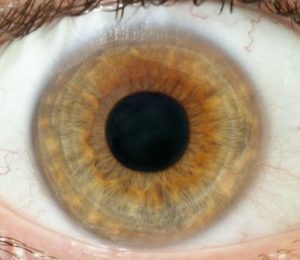
A new drug developed by researchers from Flinders University, in partnership with collaborators in Melbourne, could hold the key to better treatment of some blinding eye diseases.
Members of the research team, led by Professor Keryn Williams of Flinders Centre for Ophthalmology, Eye and Vision Research, believe they can stop or even reverse the progression of disease by blocking a particular protein which is responsible for the growth of unwanted blood vessels in the eye.
The protein, known as vascular endothelial growth factor-B (VEGF-B), keeps blood vessels healthy and alive throughout the body. However, abnormal blood vessels sometimes grow in the eye, where they interfere with vision.
Now, the researchers have engineered a special antibody which latches on to the growth factor, essentially starving the blood vessels.
“The cornea, the transparent window at the front of the eye, isn’t supposed to contain any blood vessels but through infection, inflammation or injury you can get blood vessels growing in this area,” Flinders PhD student Mr Yazad Irani, who developed the novel drug, said.
“The blood vessels basically form a great big net over the transparent window of the cornea, so light can’t pass through, which in turn obscures the vision,” he said.
“But because the growth factor is keeping them alive, we think that if we take it away, then the blood vessels will go away too.”
Mr Irani said the drug could be used as an eye drop or topical cream, although it could also be administered by injection to stop unwanted blood vessels growing in the back of the eye.
“It’s like a trap – the drug binds to VEGF-B like a lock and key and prevents it from working.
“In doing this we hope the unwanted blood vessels will die because the food they need to survive, the growth factor, is gone.”
The team, which includes Melbourne researchers Andrew Nash and Pierre Scotney, will begin animal tests as early as January, with the results of the study expected within three years.
Professor Williams, the project’s chief investigator, said preliminary tests showed the breakthrough drug affected both human and animal blood vessels, meaning it could easily be translated into a new therapy for human eye disease.
“Corneal neovascularization can happen after an accident or infection, and while you can take antibiotics to treat the infection it doesn’t necessarily stop the blood vessels from growing and then you’re left with a much bigger problem,” Professor Williams said.
“The blood vessels which grow in the back of the eye are one of the most common causes of blindness in Australia, as well as the developing world, so anything that’s going to help people see better matters to us.”
The research is being funded through a $448,651 grant from the National Health and Medical Research Council’s 2013 funding scheme, bringing the total pool of funding awarded to Flinders researchers to $6,215,636 across 13 projects.


Saw your article on TV and wondered if you are requiring volunteers for human trials. My father has MD wet and would love to let you have a go. He is 85 and very frustrated at not being able to see, especially when he had 20/20 vision up to 5 years ago.
Would love to hear from you.
Regards
Lesley
Corneal Neovascularisation is a serious problem especially with contact lens users increasing by the day. Its potential to cause blindness places it among priority diseases that need research like this. New treatment research should go hand in hand with patient awareness about non compliance of lens wear schedules or over wear of lenses.